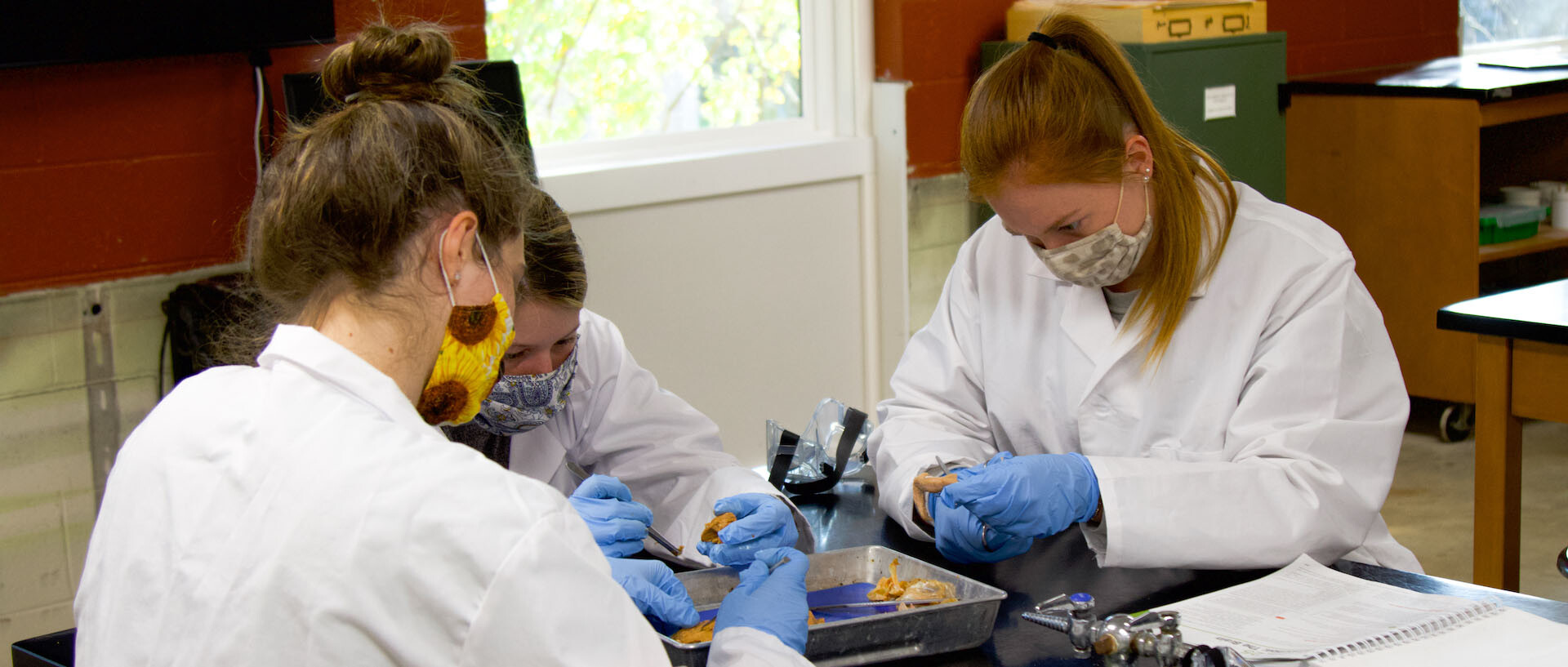
Biology (BS)
Lead—and serve—through science.
Majoring in biology at SWU means integrating faith at every level of study and growing your knowledge of biology’s subdisciplines. You’ll focus on physiology, ecology, molecular biology, and organismal biology (such as botany, zoology, and microbiology) while gaining hands-on experience with the techniques needed for success in each of these areas.
Science involves observing the world, testing hypotheses, and constantly learning. Here at SWU, you’ll do all that and more as you prepare yourself for a career or post-graduate study
In our biology program, you’ll have access to highly qualified faculty and relevant tools that support and encourage your growth as a scientific thinker. Our hands- on labs in the biological sciences will give you a greater appreciation for God’s Creation at all levels of organization—from molecules to ecosystems. Internships, research, and development opportunities abound, and students can work alongside faculty members on research projects as well.
The Biology program is approved to receive the Enhanced Scholarship for LIFE Scholarship and Palmetto Fellows.
“It’s great to be in a small school because you can actually get to know your professors on a one-on-one basis.”Malachi Beck — 2022 Biology Graduate
- Advisory or consultant work
- Biotechnology and genetics
- Chemical manufacturing
- Clinical testing
- Cosmetics
- DHEC employee
- Ecologist (e.g., for Duke Power)
- Environmental testing and remediation
- EPA employee
- Fisheries
- Food, nutrition, agriculture
- Forensic Science
- Forestry
- Groundwater studies and remediation
- High School biology teacher
- Microbiology (e.g., CDC)
- Microscopist
- OSHA employee
- Pesticide residue analysis and standards
- Pharmaceuticals
- Sale of biological and chemical supplies or pharmaceuticals
- Sewage treatment or waste disposal
- Soil science
- Zoo or aquarium
Graduates of the Biology program will be able to:
- Express and support, orally and in writing, an integration of faith and biology and a knowledge of current biomedical and environmental issues, including their ethical implications.
- Demonstrate both a theoretical and practical mastery of biology and associated sub-disciplines.
- Demonstrate appropriate lab techniques and mastery of basic laboratory skills in multiple fields of biology.
- Demonstrate mastery of the scientific method, as well as scientific primary literature and the design and application of experiments.
- Demonstrate mastery of the art of critical thinking, by formulating research questions, appropriately gathering and analyzing data, and interpreting results to address practical questions in biology.
